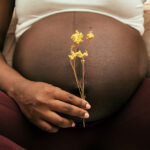When there's more than one heartbeat
For an increasing number of women, the miracle of motherhood […]
For an increasing number of women, the miracle of motherhood comes with not just one new baby, but with two—or even three or more. If you’re among the moms-to-be-of-multiples crowd, you know how stunning it can be to learn there’s more than one little bean inside you. As panic begins to set in (and it inevitably will), take heart in knowing you’re not alone. Incubating and birthing two-plus babies at a time—and going on to successfully parent them—has been done before and can most certainly be done again.

According to Silvio Aladjem, MD, obstetrician and maternal-fetal medicine specialist in Hastings, Michigan, a multiple pregnancy can happen naturally in one of two ways. Most commonly, a woman releases two or more eggs during ovulation (instead of just one) and the additional eggs become fertilized by separate sperm, resulting in fraternal twins, triplets or more. Alternately, a woman may become pregnant with multiples when one egg is fertilized by one sperm and it divides into two, creating identical twins.
There are many factors that play into the likelihood of having multiples, including your family’s history of twins, your age (multiples are more frequent in older women), and the number of children you already have (the more babies you have, the more likely you are to have multiples). The Centers for Disease Control and Prevention’s Vital Statistics Reports indicate that twins occur in 32.6 of every 1,000 births in the United States, and triplets or more in 147 of every 100,000 births. Multiples are most often fraternal twins; only about 4 in 1,000 births are identical.
In recent years, multiple pregnancies have been on the rise, partly because more women are waiting until later in life to conceive. The main reason for the growth, however, is the use of fertility treatments, notes Aladjem. More than one egg is implanted during these treatments in order to better the odds of becoming pregnant, and thus creating the possibility that more than one egg will “take” and lead to a multiple pregnancy.
What to expect
When you first find out you’re expecting multiples, you may experience a wide range of emotions. “If the multiple pregnancy occurs naturally,” says Aladjem, “there is surprise and many times an enhanced excitement surrounding the pregnancy.” And even if through in vitro, the joy of finally conceiving is multiplied by two (or more).
Once you embrace the thrill of having multiples, prepare yourself for all the usual changes that happen with pregnancy, just to a greater degree. With multiple babies to incubate, you’ll need to take extra good care of yourself, get plenty of rest, and visit your doctor more regularly than moms expecting singletons. Aladjem advises following good old-fashioned common sense: Eat healthfully, take your prenatal vitamins, stay away from alcohol and tobacco, keep moderately active, and refrain from doing anything in excess.
It’s no surprise that a multiple pregnancy can cause added discomfort, and the extent of discomfort rises with the number of babies you are carrying. “With more than three,” Aladjem says, “the mother most likely will have to be on bed rest for a good part of her pregnancy.” Expectant moms of multiples should anticipate leg swelling, frequent urination and difficulty breathing, all thanks to pressure from their expanded uterus. Even the sheer size of their bellies can be cause for distress. Sleeping will likely become less enjoyable, and Aladjem notes that “many women have to sleep in reclining armchairs toward the end of pregnancy.” Prepare to make adjustments to your routine as your pregnancy progresses and recognize that your temporary sacrifices will lead to a positive outcome long-term.
Words of wisdom
Karen Bandhauer, mom of two energetic fraternal twins in Atlanta, Georgia, found out she was having twins at her eight-week ultrasound. “It was such a shock!” says Bandhauer, “I felt so overwhelmed.” An only child with very little babysitting experience, Bandhauer felt unprepared for the responsibility of caring for two children at once. But after the shock wore off, excitement began to replace fear. “It feels pretty special to have twins, and I felt very blessed to be offered the experience,” she says.
What does she wish someone would have told her while she was going through the experience? “Just because you’re carrying twins doesn’t mean your pregnancy will necessarily be any harder, end in bed rest, or result in preterm babies. Don’t assume the worst!” she encourages. “Listen to your body and your doctors. Stay in communication with them regard-ing anything that is concerning you, and then enjoy the experience of having eight wiggling arms and legs in your belly. It’s such a miracle.”
Although having multiples is taxing, Bandhauer attests, “Seeing your babies ‘talk’ in the crib, watching them hold hands, and hearing them tell each other ‘I love you’ for the first time is worth all the discomfort.”
Beware the risks
The chance of miscarriage, preterm labor and low birth weights increases with the number of babies. Although some difficulties are not always preventable, it is important to take the very best care of yourself to have a safe, successful pregnancy for you and your little ones. “A multiples pregnancy is more likely to have complications,” warns Aladjem. He advises women pregnant with multiples to be aware of the warning signs of early labor, such as pelvic pressure, low back pain, increased vaginal discharge or a change in false labor pains. When symptoms are immediately reported to your doctor, she may be able to delay delivery to give your babies more time to grow and develop.
Because of the release of the hormone oxytocin during orgasm, Aladjem suggests avoiding intercourse, explaining that it may stimulate the uterus to contract. He also recommends staying close to home and avoiding traveling as your due date draws near. Long trips often require prolonged periods of sitting—whether in the car or on the plane—which Aladjem explains can cause swelling in the legs and also slow down blood circulation, leading to a potential blood clot. Additionally, if you’re far from home when you go into labor, you’ll be forced to go to the nearest hospital and receive care from a doctor who is unfamiliar with you and your pregnancy.
Other potential risks for a multiple pregnancy include increased chance of preeclampsia and gestational diabetes. Delivery can also be more difficult (most multiples deliver via Caesarean section) and there may be greater risk for postpartum hemorrhage, because as Aladjem points out, the “overextended uterus” may have a harder time contracting once your babies are born.
Although the challenges and risks associated with a multiple pregnancy may be great, take heart in knowing that so too are the rewards.
You can connect with a local twins club early on in your multiples pregnancy for extra support. Members can tell you about what to expect and offer comfort when you’re feeling overwhelmed. Your doctor may be able to recommend a group, or you can visit the National Organization of Mothers of Twins Clubs, Inc. to find one in your area.







